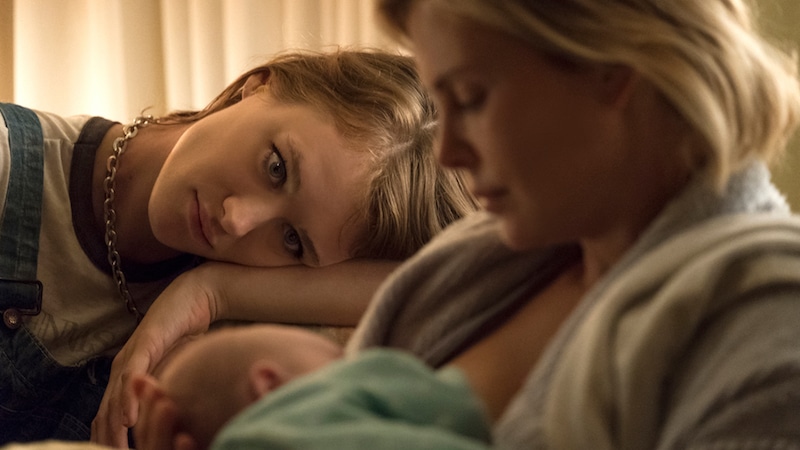
Blue Night and Tully — two of the highest profile films at the 2018 Tribeca Film Festival — share the same formula: stories revolving around vulnerable, middle-aged female characters written by women and starring high-profile actresses…but directed by men.
Blue Night, written by Laura Eason and directed by Fabien Constant, stars Sarah Jessica Parker as a mid-career jazz singer who, on the verge of her next concert tour, learns of a fatal medical condition.
Virtually in every frame, we spend the next 24 hours with the character as she navigates a series of vignettes between her lovers, offspring, mother, a mysterious stranger and her manager.
The film shakes its death shroud and comes alive in the two extended scenes featuring Parker and Jaqueline Bisset, playing her overbearing but fascinating mother, and Parker and Renee Zellweger, a former best friend and fellow jazz singer, whose choice of family over career offers a stark contrast.
Tully, written by Diablo Cody and directed by Jason Reitman, stars Charlize Theron as the title character, living a life of quiet desperation as a housewife and mother of three in suburbia.

With a plot twist worthy of Sixth Sense, a shining knight comes to her rescue in the form of a modern-day Joan of Arc, a virtuous young woman whose generosity seemingly knows no bounds. Loosely based on Cody’s own personal experience (as her screenplays are) as a mother of three, the film is unabashedly about postpartum depression in an everyday sort of way.
An underlying message in both films is something like ‘you better get used to bad things happening to you if you’re a woman entering middle age’, say, an incurable disease or paranoid schizophrenia. Ouch. Both main characters also vacillate between helpless and overwrought, and are over-forgiving to the men in their lives who are either unsympathetic or downright hostile.
Would these have been the same kind of movies had they been directed by women? Same basic storylines, yes, but a lot can happen to a film in production and the editing room.
We’ll likely never to know, which begs another question: Why weren’t they directed by women?